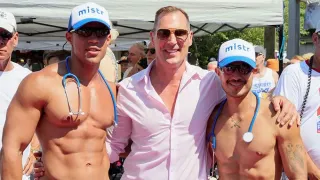
Sep 8
Amr Elsheikh Has Us in an Empire State of Mind
Timothy Rawles READ TIME: 15 MIN.
Alicia Keyes may have sung about being in an “Empire State of Mind,” but Amr Elsheikh has us in a state of awe.
This young New Yorker is a gorgeous example of why The Big Apple is called a melting pot; the heat he gives off is molten.
When Amr isn’t strutting through the city or busy at the gym, he’s giving Hollywood a try. He’s been in a few TV series already, and it shouldn’t be long before he gets his big break.
In 2019 he had a part in CBS’ “FBI,” and then in 2021 he played a policeman in “The Bait.”
But we like Amr on the small screen, namely Instagram where he shows off his incredible body; casting agents should have him on speed dial.
Not only is Amr a model and actor, he is also a fitness influencer. He loves to give us lots of post-workout pics and it feels like, although he might be sweating, we’re getting the benefits.
With his heart in Hollywood but his feet planted firmly in New York City, Amr is making it everywhere. Which makes sense because, as Alicia Keyes sings, it’s the “Concrete jungle where dreams are made of.”






